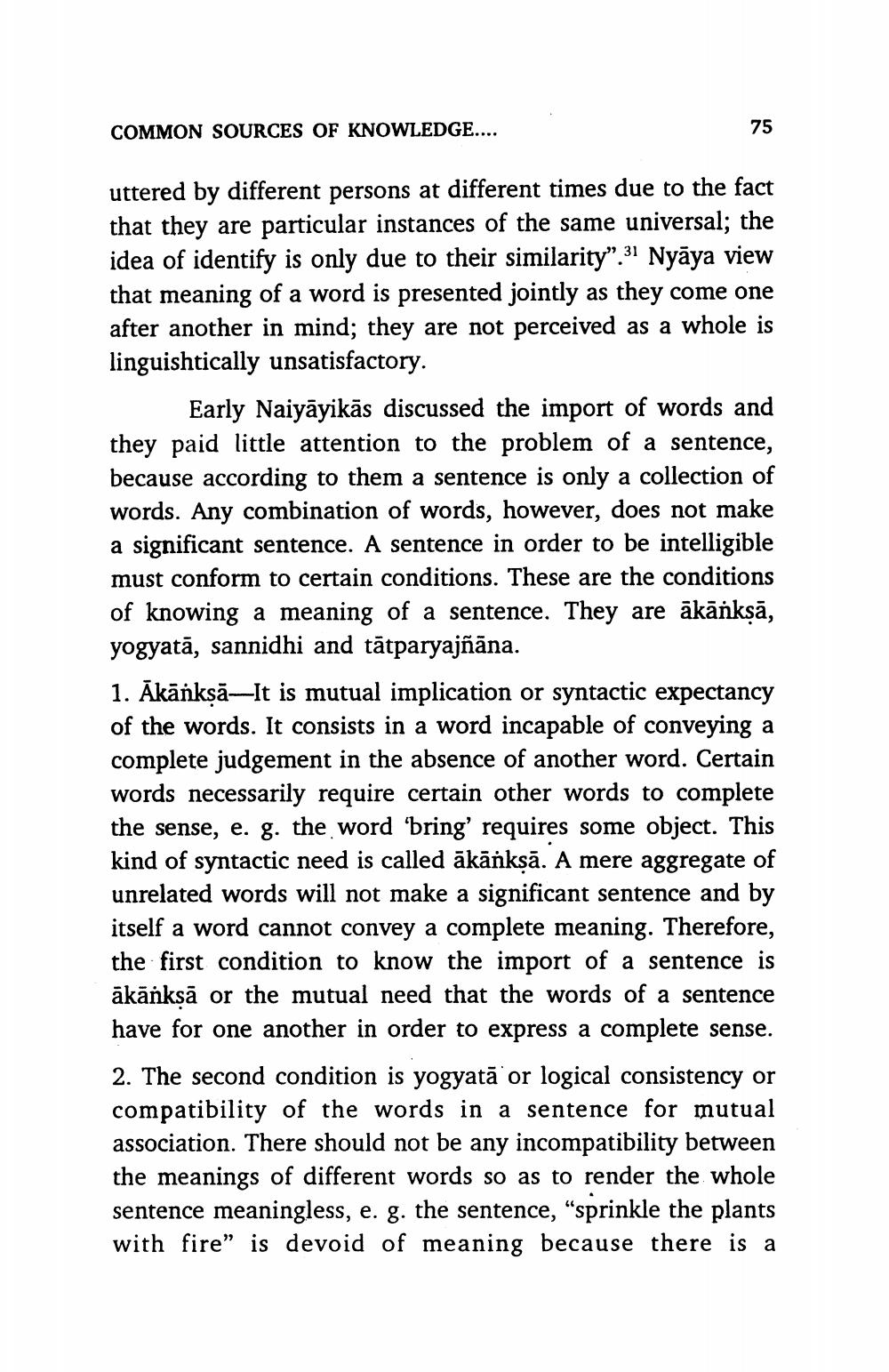________________
COMMON SOURCES OF KNOWLEDGE....
75
uttered by different persons at different times due to the fact that they are particular instances of the same universal; the idea of identify is only due to their similarity”. 31 Nyāya view that meaning of a word is presented jointly as they come one after another in mind; they are not perceived as a whole is linguishtically unsatisfactory.
Early Naiyāyikās discussed the import of words and they paid little attention to the problem of a sentence, because according to them a sentence is only a collection of words. Any combination of words, however, does not make a significant sentence. A sentence in order to be intelligible must conform to certain conditions. These are the conditions of knowing a meaning of a sentence. They are ākānkṣā, yogyatā, sannidhi and tātparyajñāna. 1. Ākāńksā—It is mutual implication or syntactic expectancy of the words. It consists in a word incapable of conveying a complete judgement in the absence of another word. Certain words necessarily require certain other words to complete the sense, e. g. the word 'bring' requires some object. This kind of syntactic need is called ākāńksā. A mere aggregate of unrelated words will not make a significant sentence and by itself a word cannot convey a complete meaning. Therefore, the first condition to know the import of a sentence is ākānksā or the mutual need that the words of a sentence have for one another in order to express a complete sense. 2. The second condition is yogyatā or logical consistency or compatibility of the words in a sentence for mutual association. There should not be any incompatibility between the meanings of different words so as to render the whole sentence meaningless, e. g. the sentence, “sprinkle the plants with fire” is devoid of meaning because there is a




